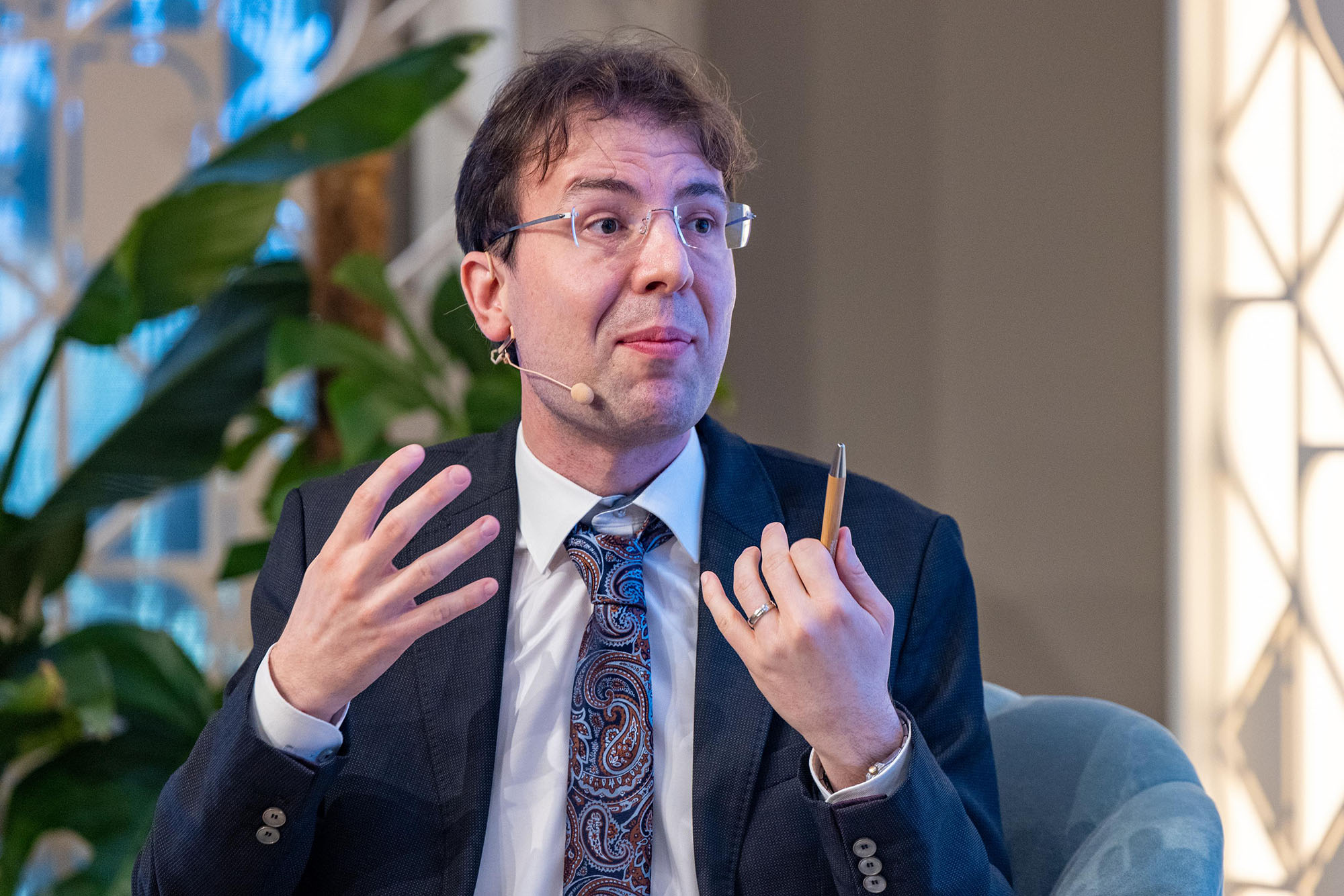- Academics
- Admissions & Enrollment Services
- Research
- Academic & Creative Spaces
- Strategic Partnerships
- Our Impact
- Student Affairs
- Campus & Community
Faculty Invited to Moderate Women’s Pavilion Panel for Space Week at Expo 2020
October 26, 2021
Categories

Faculty member says he was honored to be part of the global platform
“There is something especially universal about space. No one country has exclusive access to the stars; we can all see the same sky. And if we go to space and look down on earth, we can see our planet as it really is. A planet that actually does not have borders – as one blue marble; as one spaceship that we’re all living in, that we all take care of.”
These words – profound both for the truth they convey, and the context in which they were said – were part of the opening remarks made by Dr. Jörg Matthias Determann at a panel discussion at Expo 2020 Dubai, last week.

Dr. Determann, Associate Professor, History, Liberal Arts and Sciences, was invited by the Women’s Pavilion at the Expo, and the Louvre Abu Dhabi, to moderate a panel discussion for the “Women in Arabia and Islam” session on the topic of “Space Pioneers of Today Anchored in Arabian and Muslim Past”, as part of the Expo’s Space Week.
The panel constituted of Dr. Hedia Chackroun, Associate Professor, Hydraulic Engineering and Geomatics, University of Tunis El Manar, Tunisia; Dr Randa Asa’d, Associate Professor, American University of Sharjah, UAE; Aisha Abdulla Alowais, Research Assistant, Sharjah Academy for Astronomy, Space Sciences and Technology, UAE, and Dr. Margaret Gaida, Postdoctoral researcher, California Institute of Technology (Caltech), USA.
The panelists discussed and shared their perspectives on topics ranging from the relevance and history of space exploration, the challenges faced by astronomers in the past, and in the present, the experiences of female scientists such as themselves as they progressed in their careers, and how it is encouraging to see females increasingly pursue pathways in science.
Dr. Determann says he was honored to be a part of the panel discussion, especially given that women are still underrepresented in leadership positions in science, technology, engineering and math (STEM).
“The vast majority of university presidents and deans, directors of research centers, Nobel laureates, and astronauts have been and still are men,” says Dr. Determann. “I was thus thrilled to be part of a discussion where all panelists were women. I am also very happy that these women represented different career stages: a research assistant, a postdoctoral researcher and two associate professors. I hope they can serve as role models for young women. With their successes, they can guide the way forward for many others.”
As a historian who has written extensively on Islam, Arab civilization, Science, and Astronomy, Dr. Determann says he was excited to see Muslim women take up leading roles in STEM subjects.
“Leading space-faring nations like the United States, Russia or China have been governed by secular parties,” he noted. “Hence, religious symbols thus hardly made it onto their discussions, exploration, or spacecraft. So, this was a rather special occasion in the history of space exploration. Seeing space scientists wear attires that were indicative of their cultural or religious beliefs in a professional context shows girls that they can aim for the stars without having to give up their culture and traditions. As a panel moderator at the Expo 2020 Dubai, I was very honored to be able to give a global platform to these inspiring scientists.”
As per Expo 2020 Dubai’s website, one of the most famous astronomical instruments used in the ancient world, specifically in the Arabian region – the astrolabe – “was remarkably improved by a Muslim female astronomer, Mariam al-Asṭurlābiyya, in the tenth century. al-Asṭurlābiyya’s contribution in astronomy continues to have positive impacts to date, for modern techniques such as GPS, and other equipment used for navigation. Her long-neglected achievement was finally recognized in 1990, when a main-belt asteroid, 7060 Al-ʻIjliyyah, was named after her. Now, in the 21st century, Arab and Muslim astronauts, astronomers and space researchers, continue to shine in the space sector”.
World Expos, officially known as International Registered Exhibitions, “are a global gathering of nations dedicated to finding solutions to pressing challenges of our time by offering a journey inside a universal theme through engaging and immersive activities”. In addition to scheduled events, Expos allow countries to build bespoke pavilions, resulting in a spectacular display of architectural and interior designs that delight visitors. Around a million visitors have visited Expo 2020 Dubai to date.
The panel discussion moderated by Dr. Matthias took place at the visually striking Women’s Pavilion. The lower part of the pavilion’s façade was decorated by renowned artist El Seed using Arabic calligraphy to spread messages of peace, unity and to underline the commonalities of human existence. Spanish interior architect Laura Gonzalez together with Dubai born artist Kholoud Sharafi and French light designer Pauline David, designed the upper part of the pavilion’s façade.
To view the recording of the panel discussion, please visit https://virtualexpodubai.com/listen-watch/events/women-in-arabia-and-islam-or-space-pioneers-of-today-anchored-in-arabian-and

